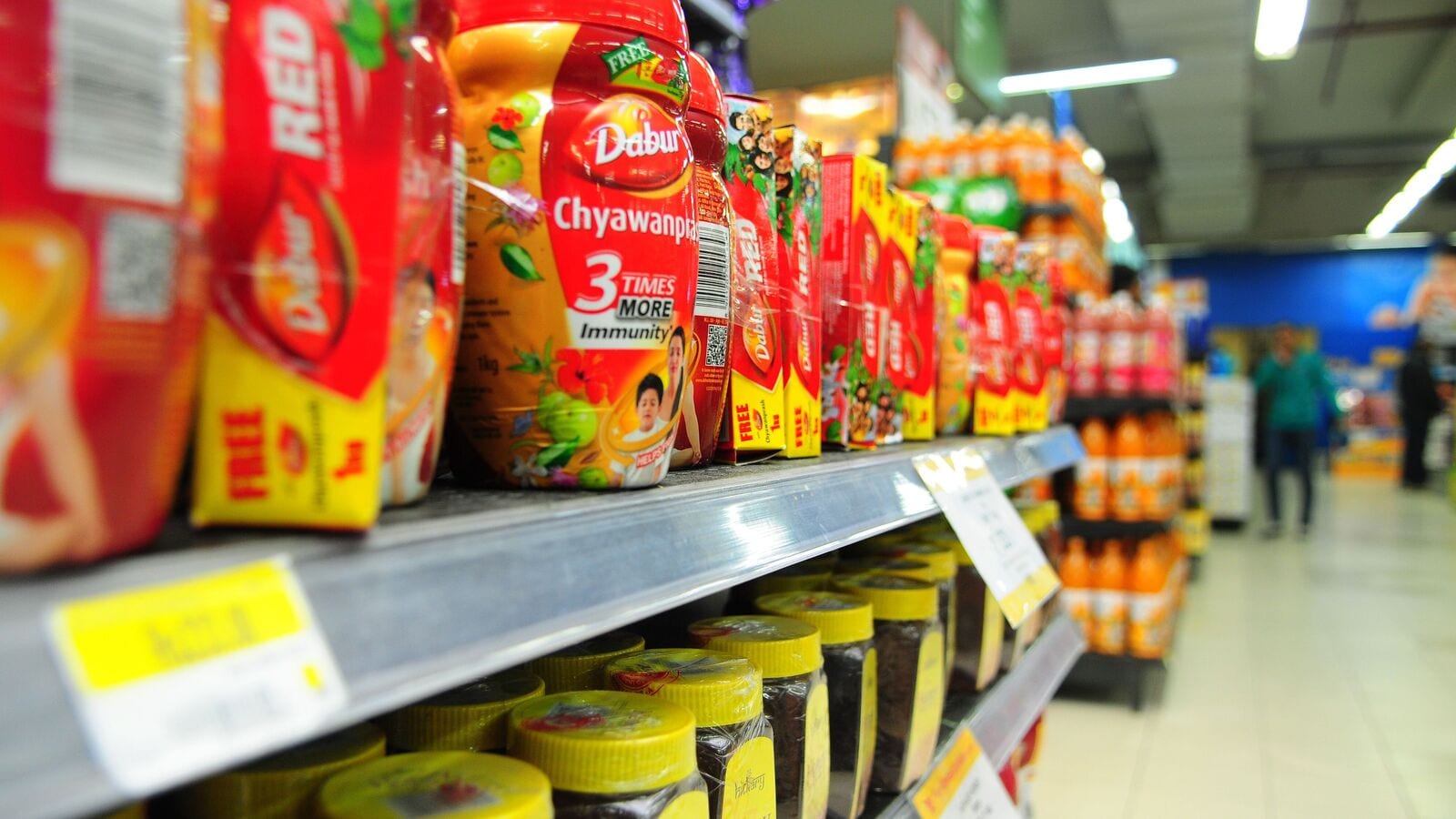
For ayurveda-based consumer goods giant Dabur India Ltd, the just-concluded September quarter was a washout. While demand saw some improvement, adverse weather conditions, including heavy rainfall and floods, hurt out-of-home consumption, especially for beverages, Dabur said in a business update. In reaction, the stock fell by nearly 7% in afternoon trade on Thursday amid a wider market crash.
The weak demand is also resulting in an inventory build-up for Dabur in the general trade channel, which commands a lion’s share of the company’s sales. Disproportionately higher growth in e-commerce and quick-commerce sales has led to the increased build-up, weighing on distributors’ return on investment, Dabur said.
To remedy this, Dabur has decided to realign distributor inventories in its general trade channel. Consequently, a temporary decline in revenue cannot be averted. Dabur anticipates a mid-single digit decline in its consolidated India revenue for the second quarter (July-September).
Nuvama Research estimates Dabur to post a year-on-year decline of 5% in consolidated revenue and 15% in Ebitda for the September quarter. In the first quarter, Dabur’s consolidated revenue rose 7% and Ebitda was up 8.3% year-on-year. Ebitda is earnings before interest, tax, depreciation and amortisation.
Nuvama is also pencilling-in a high-single digit year-on-year decline in domestic volumes for Dabur. The issue of excessive inventory is common for fast-moving consumer goods, or FMCG, companies, but its impact on Dabur has come as a negative surprise to the Street. Dabur’s FMCG portfolio includes Dabur Chyawanprash, Honey, Honitus, Pudin Hara, Red Paste, and Real.
Given the lower primary sales, Dabur said it expects its operating margin to fall by mid-to-high teens in the second quarter due to higher investment and deleveraging, which will affect the company’s profitability.
“Despite the acute pressures, Dabur’s comments on maintaining marketing spends point to the fact that ‘margin management’ is unlikely to be easy going forward,” said Jefferies India.
On the bright side, Dabur’s international business is likely to deliver double-digit revenue growth in constant currency terms. Also, its Badshah Masala business continued to perform well in the September quarter, growing in double digits.
The Dabur management expects the company’s business performance to improve in the third quarter ending in December. Investment in distribution infrastructure will continue, and Dabur hopes to revive revenue growth from October onwards, helped by momentum in alternative channels. Recovery in rural demand and better winter demand could aid the company’s revenue mix.
Also read | Rural demand is finally taking off. FMCG firms capitalize with strategic moves
But this may not be enough to revive the stock’s performance. In this calendar year so far, the Dabur stock has risen by a mere 5%, significantly lagging the Nifty FMCG index, which is up by 13%. This gap is likely to persist at least in the near-term because potential pitfalls could hurt earnings, keeping the stock under pressure.
In a report dated 2 October, Systematix Shares and Stocks (India) cautioned that 35-40% of Dabur’s portfolio was facing near-term growth headwinds. Channel checks indicated subdued second-quarter growth, and Dabur had flagged sharp pricing aggression by competition in colas, Systematix said in a report.
Dabur, which sells fruit juices under the Real brand, will have to keep watch on the cola price war and likely disruption by Campa Cola, which Reliance Consumer Products, the FMCG arm of Reliance Retail Ventures Ltd, has relaunched in three new variants.
Also read | Charanjit Singh: Campa Cola’s forgotten founder who battled Coca-Cola, Pepsi, and India Today
In this backdrop, a downgrade in earnings estimates for FY25/FY26 by some broking firms is not surprising. Plus, given these challenges, Dabur’s valuation appears to be expensive, despite the positives of market share gains in select categories, its cost-saving initiatives, and distribution expansion.
At FY26 price-to-earnings, the Dabur stock is trading at a multiple of around 44 times, showed Bloomberg data. A meaningful re-rating of the stock depends on the consistency of earnings growth.
Also read | Dabur’s fortunes tied to rural recovery





